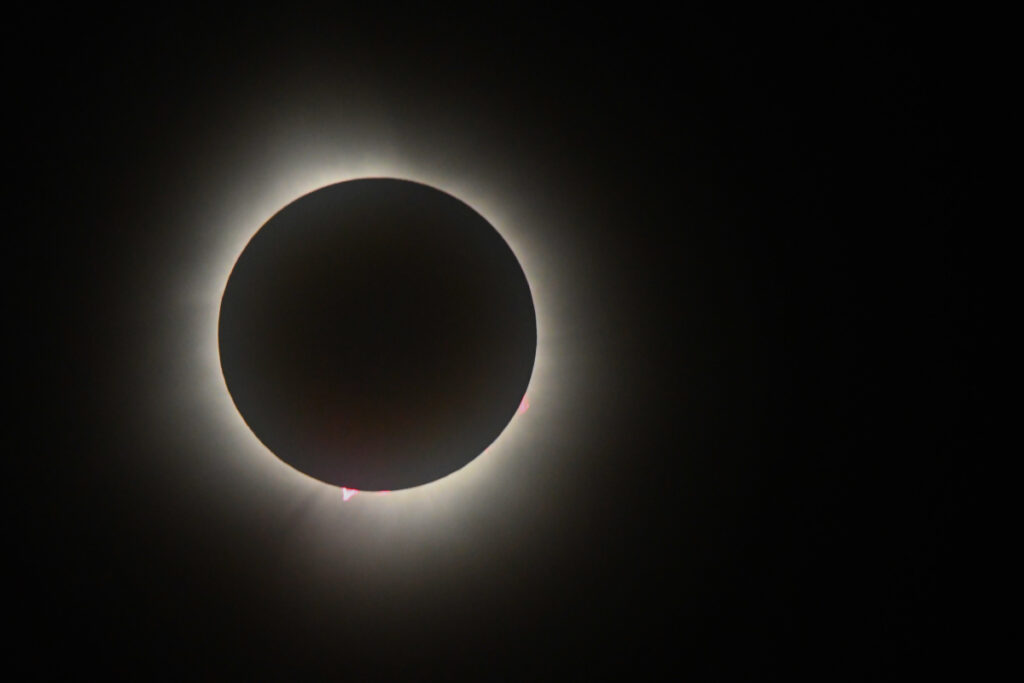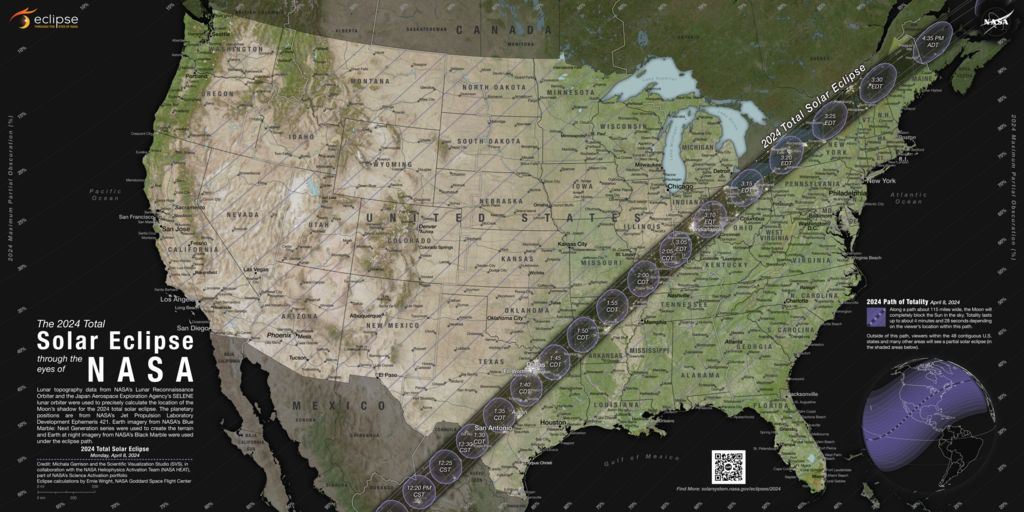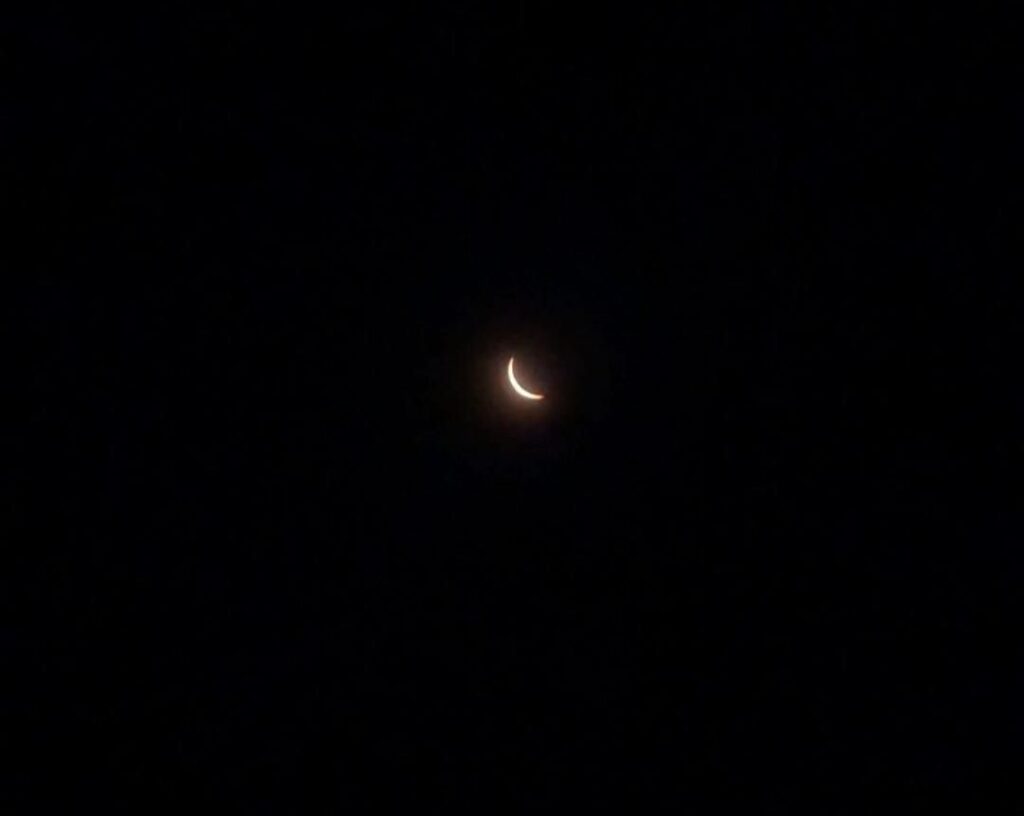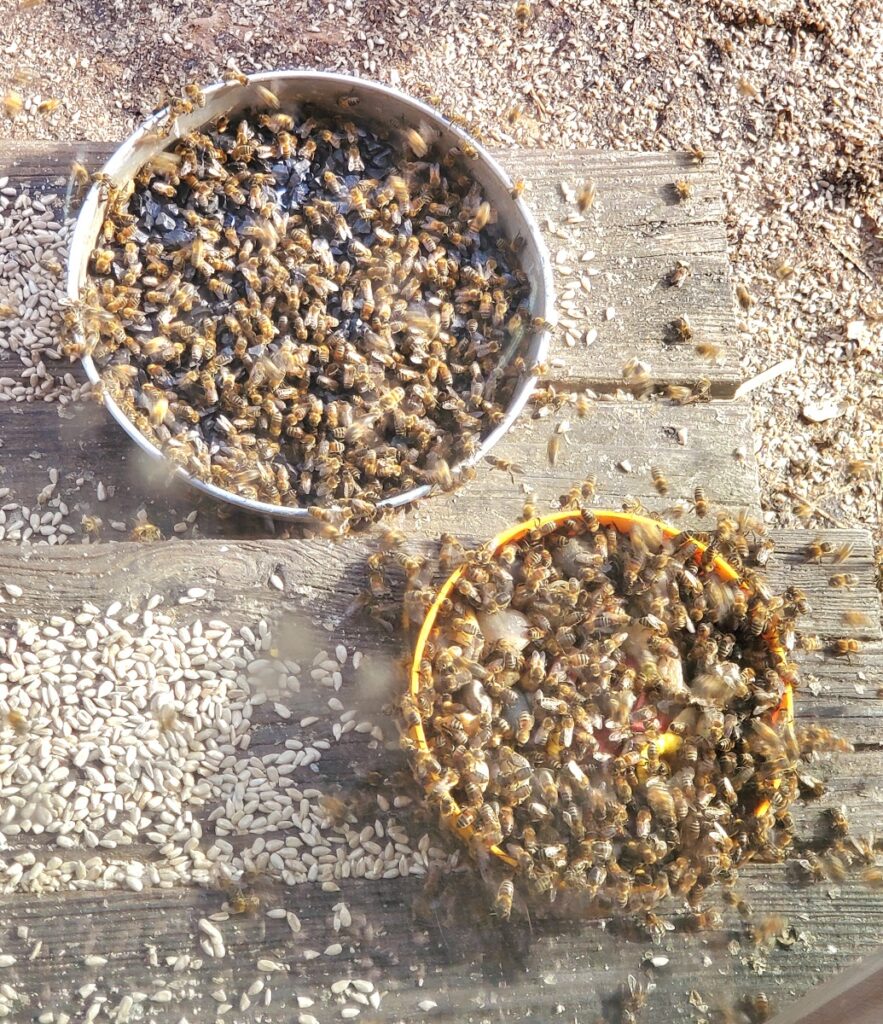
9 April 2024
For three minutes yesterday afternoon, people in a wide swath of the U.S. from Texas to Maine were wowed by the total solar eclipse. Jeff Cieslak was in the totality zone in Berea, Ohio and captured the photo at top. Look closely at the dark edge and you’ll see solar prominences (flares).

Pittsburgh and Dubois, PA, just east of the totality zone, were both close enough to experience a 97% eclipse. Our light level was like dusk and the temperature got cooler. Charity Kheshgi captured the partial eclipse in Pittsburgh at 3:17 to 3:20pm.

Meanwhile Marianne Atkinson noticed a change in honeybee behavior at her home in Dubois, PA. She’s providing a honeybee feeder this spring, filled with sugar water, to feed hungry bees in the early days before the flowers bloom. Yesterday morning her feeder was mobbed with honeybees and was running dry.
There were too many bees for her to safely refill the feeder so she put out a second one (white rim). It was mobbed, too.

And then the eclipse began. Marianne describes what happened.
I had just added a second honey bee feeder this afternoon, not long before the eclipse started. But, during the eclipse at 97%, there were very few bees on either feeder! The yellow feeder only had two bees and the gravel feeder had 3 bees. I took this opportunity to add more nectar to the yellow feeder, since it was empty.
[Meanwhile] The many American Goldfinches and Pine Siskins were chattering away in the trees nearby during the whole eclipse. The sky had gotten a little darker, but not dark like a solar eclipse in totality. There were clouds during most of the eclipse, with occasional peaks of sun or seeing it through thin clouds. I was able to view it off and on.
— email from Marianne Atkinson, Dubois, PA, 8 April 2024
Honeybees are diurnal and they return to their hive at dusk to spend the night indoors. Apparently the light level during a 97% eclipse is low enough to prompt bees to go home. After the eclipse the honeybees came back quickly to both feeders. Marianne said, “They had just recently discovered the pea gravel feeder, but did not waste any time in utilizing it!”
Did you notice any special animal or insect behavior during the eclipse? Leave a comment with your observations.
(credits are in the captions)
I was at the Miller Ponds at Pymatuning. I noticed during totality the Spring Peepers started calling. Can’t say I saw any obvious changes in bird activity. The ponds were loaded with waterfowl that just stayed in place during the eclipse.